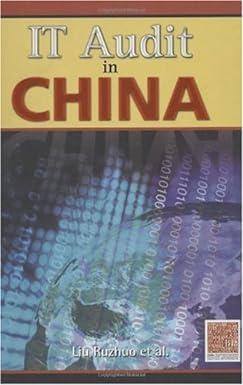Question
In 1997, SFAS 130, Reporting Comprehensive Income, was issued by the FASB (now included in ASC 220). Comprehensive income is defined as all changes in
In 1997, SFAS 130, Reporting Comprehensive Income, was issued by the FASB (now included in ASC 220). Comprehensive income is defined as all changes in equity during the period except those resulting from investments by, or distributions to, owners. Thus, in addition to net income as calculated under GAAP, comprehensive income includes other comprehensive income (OCI)items such as unrealized translation gains and losses resulting from the consolidation of foreign subsidiaries, some unrealized fair value gains and losses on financial assets, and unrealized gains and losses on cash flow hedges. A reason for the creation of OCI is that management objects to the inclusion of unrealized items in net income, on the grounds that they are volatile, uncontrollable, and uninformative about their effort.
Under both IASB and FASB standards, OCI items can be reported following net income in a combined comprehensive income statement or, if shown separately, in a statement beginning with net income and reported immediately following the net income statement. Either way, comprehensive income is the sum of net income and OCI.
Required
a. Assuming that the goal of standard setters is to ultimately value all assets and liabilities at fair value, is the inclusion of unrealized gains and losses in OCI most consistent with the public interest or the interest group theory of regulation? Explain.
b. Under the original 1997 FASB accounting standard (SFAS 130), OCI could be reported either in a combined comprehensive income statement or as part of a statement of changes in shareholders equity. This latter option shows OCI apart from net income. Most U.S. firms chose this latter option. Why?
c. Is inclusion of OCI in a separate statement of changes in shareholders equity consistent with managers acceptance of efficient securities market theory? Explain.
Step by Step Solution
There are 3 Steps involved in it
Step: 1

Get Instant Access to Expert-Tailored Solutions
See step-by-step solutions with expert insights and AI powered tools for academic success
Step: 2

Step: 3

Ace Your Homework with AI
Get the answers you need in no time with our AI-driven, step-by-step assistance
Get Started


